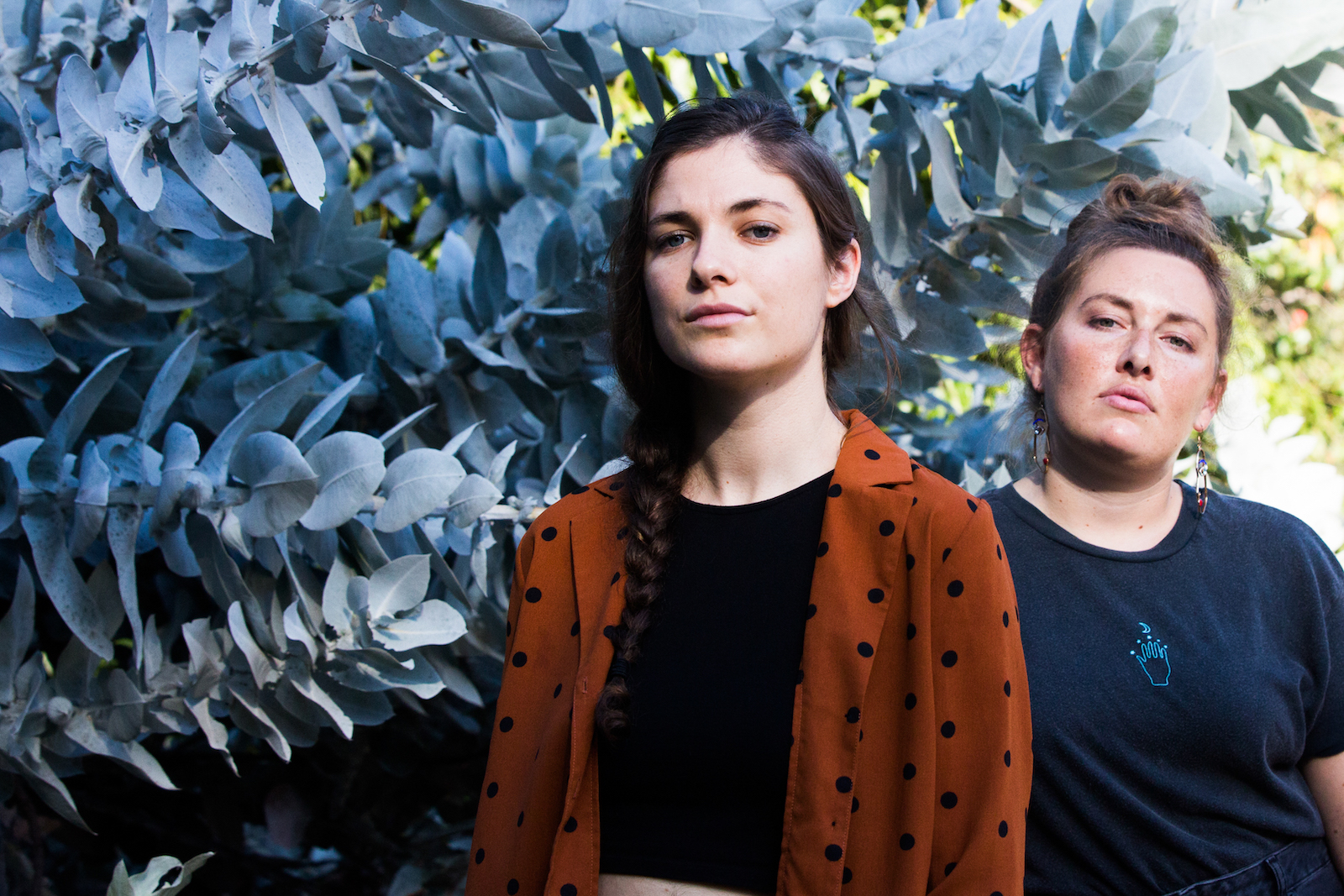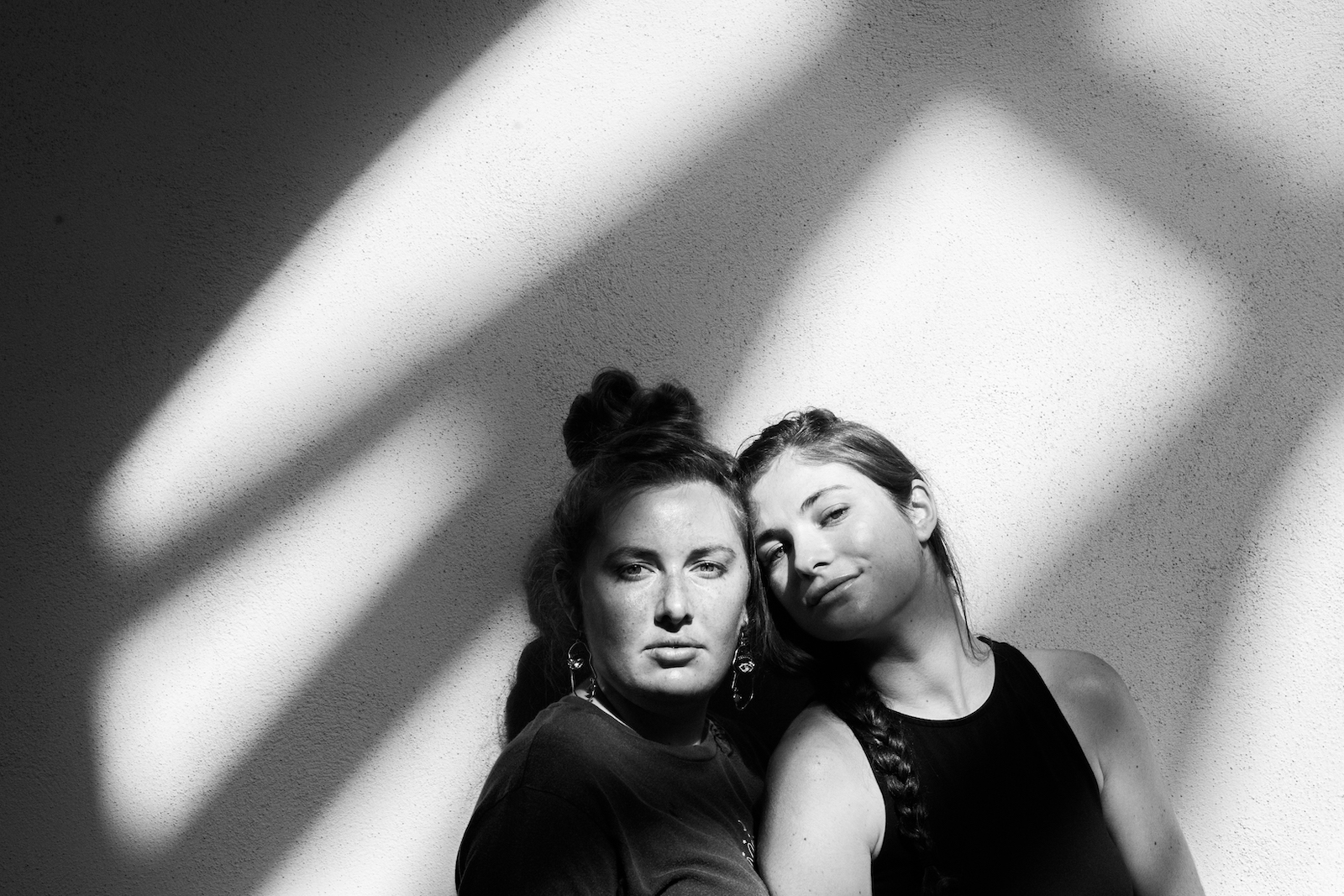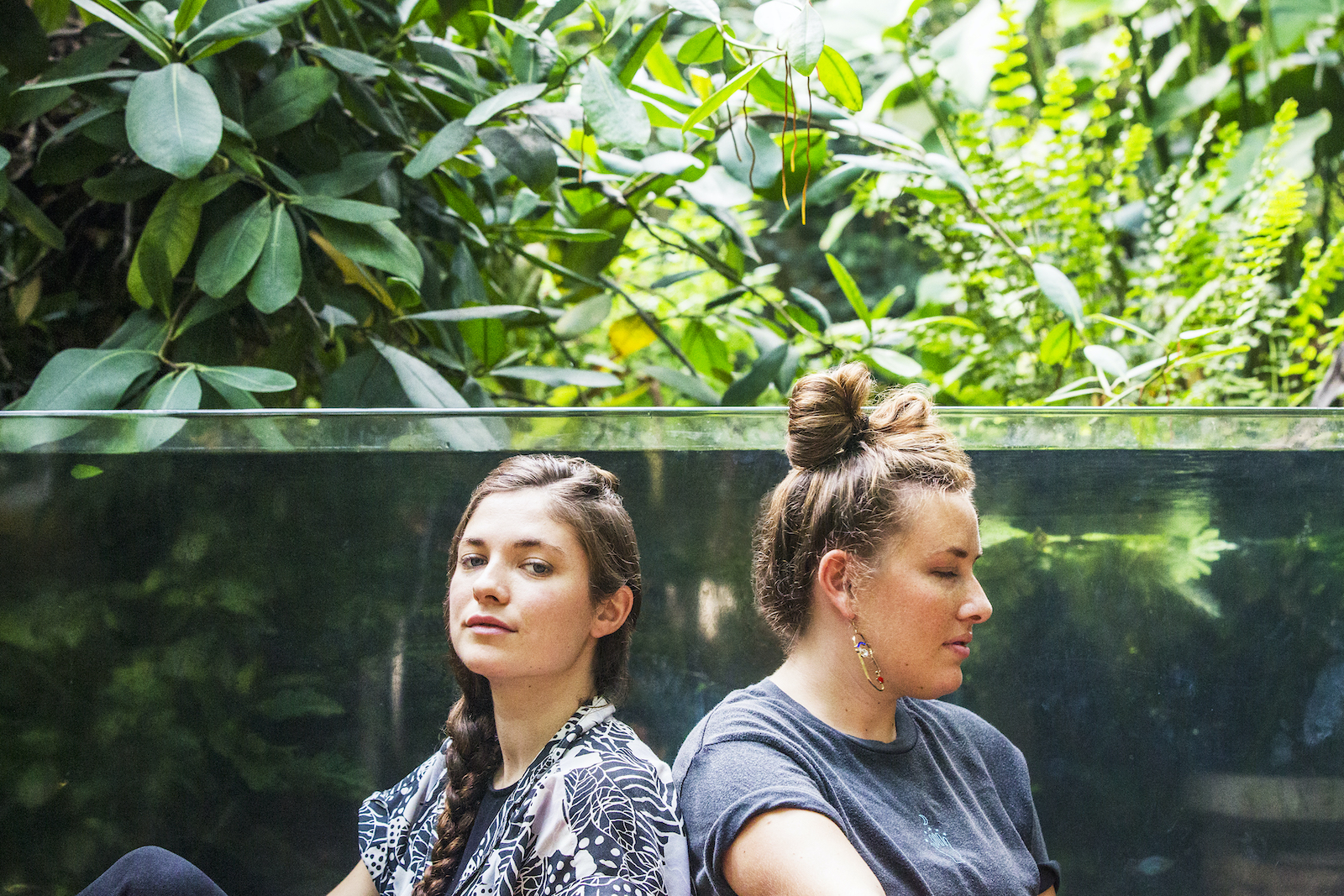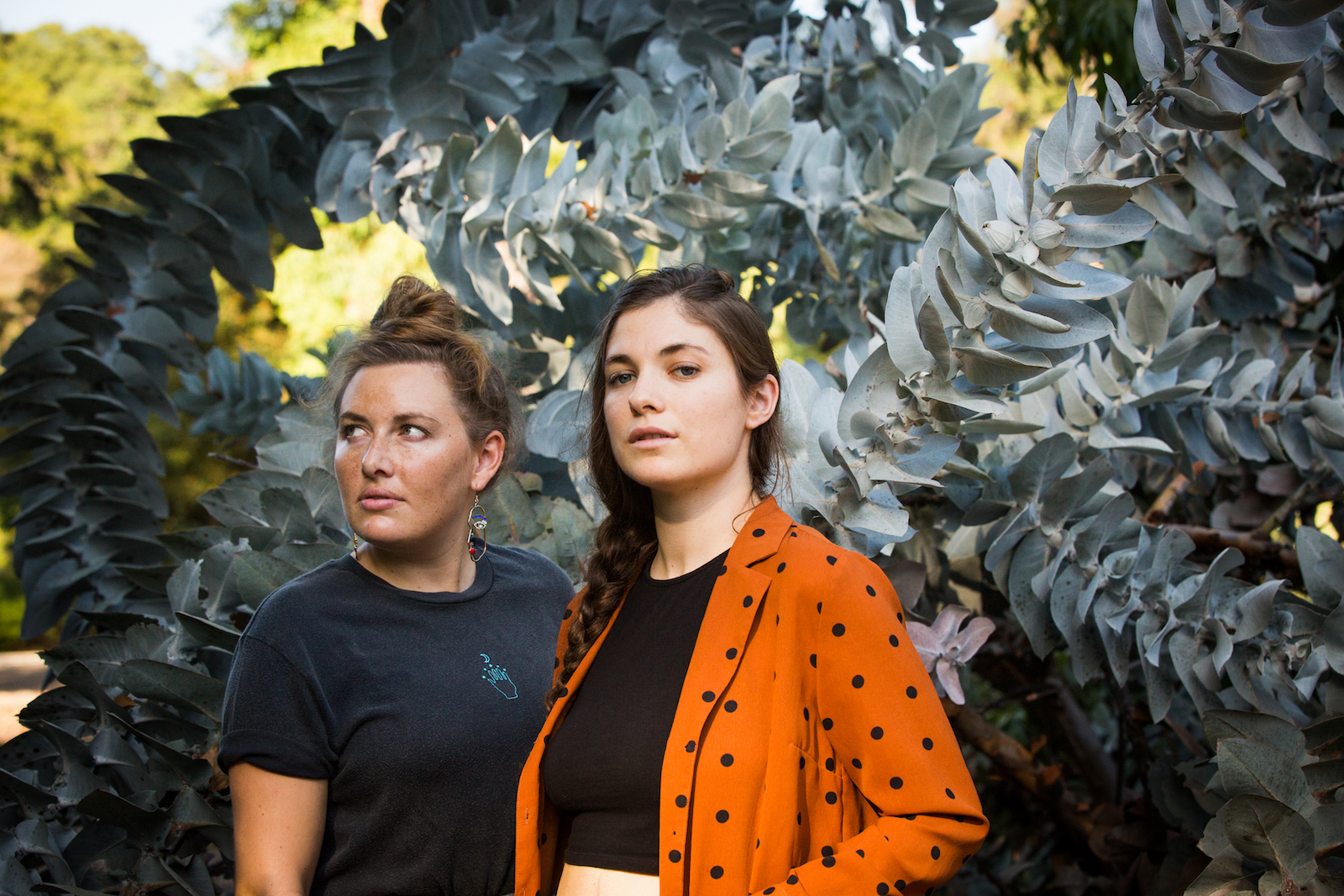
Stilljill represents the kind refreshing female energy that resonates with people from all ages and backgrounds. Fusing indie pop with psychedelic rock, the LA-based trio bring a gentle yet strong sense of mellowed teenage excitement. The all-female band complement one another with vocal harmonies bouncing off syncopated drums and flowing alongside swelling synths.
Their debut EP, Waterslides, is the evolution of a single released with the same title, and represents impressive personal growth and a capturing of feminine energy. Referring to themes including adaption, anger and love, Waterslides concerns the human condition and the reality of navigating of life as a woman.
Its vulnerability is both mesmerizing and impressive, offering soft yet intriguing melodies which nod towards the band’s passion for communicating the complex female experience.
We caught up with Stilljill to find out more about Waterslides, their passions and motivations, and their hopes for a post-pandemic future.

Your new EP is about women and fluidity. Why was it important to weave these songs into your music?
Waterslides, as the EP title and as single title, is a representation of femininity in both direct and abstract ways. Womxn have historically been analogous to water – Sirens, Venus being born from seafoam, water and women as the birth and source of life. Womxn are often conditioned to be fluid or amenable when others won’t in ways that do not always serve us; i.e. compromising needs and desires, shifting ourselves or voices to suit spaces and male egos. Fluidity also means resilience, strength, and adaptability and we find power in that. Sonically, we incorporate drippy, saturated guitar tones and reverb vocals to our dreamy, psych-influenced indie-rock sound. Our choice of tones evokes watery imagery and sensations. Overall, we use the motif of water in a variety of states to illustrate the personal and historical realities of the feminine experience.
We are really lucky to be a group of all womxn musicians working together, it feels like such a rare jewel in this industry. We started as two and grew into a trio with the addition of Anina shortly after this EP was recorded. It feels important to weave these themes into our music because it is something that applies to all three of us. Though we are womxn in a male-dominated industry, we have the privilege of being white womxn. And as such, we have a responsibility to check in with ourselves and take accountability in the ways we are complicit in perpetuating systems of oppression. Voicing our feelings and thoughts about feminism, womxnhood, and oppression through art comes naturally, as an organic response to our lived experiences.
Can you tell us a bit more about your process of creating music? How do you stay inspired?
For the Waterslides EP, Alex and Jill both had individual and collaborative processes.
Alex: “For me, there are always ideas that “arrive” at one point or another. I call them “arrivals” because a melody or lyric will just pop into mind out of nowhere — and then it’s time to conceptualize and meditate on where that idea came from. It’s a process of reverse psychology to complete a song from that point forward. An important thing that I ask myself in that process is, “what can I say that feels both personal and cathartic, but also relatable and inclusive?”
Jill: “I often step into my imagination and let the music flow as we’re working out the details of a song. Sometimes the music brings images to mind that I try to translate sonically. For instance, during the breakdown section of the Waterslides single, I imagined giant waves crashing into each other and I played what I thought that sounded like.”
Once we are jamming, we flow pretty openly. Through this EP, it was so fun to find ourselves so intuitively on the same page while creating – it was always so cosmic.
Nowadays as a trio, this EP has inspired us to develop parts that feel true to the music and the theme and also true to our instincts as artists in the moment. Checking in with ourselves and our surroundings is something very familiar to us and not separate from music making.
What are some of your biggest motivations when it comes to creating music?
Music has been a lifelong friend to all of us: listening to and playing music allows us to work through our emotions and understand ourselves better. Genuine expression through sound is what drives us to create – and it is very cool when others connect to it, too. Our current journey playing music together has been about peeling back layers of trauma and navigating the complexities of humanity and womxnhood. In our musical works, we have explored the ways in which our personal journeys and grander narratives of the world can relate. The world continues to face climate change, racism, homophobia, sexism, violence, and social injustices of all kinds. We connect with the deep humanity of personal experiences and collective global experiences alike. We are motivated by actively drawing these parallels, intermingling individual struggles with the undeniably important issues facing the world. We are all connected and capable of becoming active agents of change for the better.
Is there anything that currently inspires you about the music industry?
There are more resources and DIY opportunities available to artists today than ever before, which allows artists to make whole albums on shoestring budgets, create live performance opportunities for themselves, and build and connect with real audiences for their music. While there are still gatekeepers in this industry, a lot of modern technology breaks down traditional barriers, thus allowing artists freedom of expression, which, in turn, makes for better art. Artists and the industry have always been adaptive, and with the unprecedented reality of Covid-19, it’s been amazing to see how people continue to create, share and learn, even when they’re facing a world without live music in traditional venues.
The global pandemic has been an interesting time for all creatives. How has it impacted your work and feelings as musicians?
There is a strange, complicated gratitude for having ample time to see how deep we can dive into musical ideas, without the stress and rush of ‘normal life’. And yet, it’s complicated because we are all simultaneously grappling with the pain, fear, and exhaustion of navigating a pandemic. We, like most folks all over the country and the world, are operating under a lot of unknowns about our futures. For example, playing live is essential for many artists like us to make a living and grow careers and we have no idea when we’ll be able to play a live show next. It makes us nervous for the smaller music venues across Los Angeles, as we feel it is so vital for them to survive the pandemic. These are hugely important spaces for up and coming musicians, and we worry what it may do to the industry if we lose them.

That said, the pandemic has brought a sort of collective vulnerability that our modern culture has never seen before. The artistry and creativity that has and will continue to be born during this time will be really interesting and reflective. Perhaps this will inspire a more collaborative, less self-involved ecosystem of art.
What are some of your hopes for the future?
Our hope is that fellow musicians will not lose hope for the shaky unknown ahead. We have the unique ability to channel fear, pain, and vulnerability through creation. So let’s continue to dive deep into our work and keep making amazing music — because people are waiting for it. We, ourselves, have a teenage excitement about all the new music that will come out of the stagnation of quarantine. And we hope that all music lovers will invest in the artists they love, small venues they visit, and creative spaces we all enjoy, to keep the music ecosystem for growing artists alive.
Globally, our hope is that we, the people, continue to recognize and use our power to take meaningful action to affect the change this country so badly needs. We need new systems, policies, and elected politicians to reflect the fact that Black Lives Matter, environmental sustainability is urgent, that LGBTQIA and immigrant rights are human rights, and so much more. Music will undoubtedly be an integral part of this revolution and we as a band stand with the movement and are committed to growing with it as we grow.

CONNECT WITH STILLJILL
INSTAGRAM // WEBSITE // SPOTIFY
photos / courtesy of the artist
story / Abi Buller
